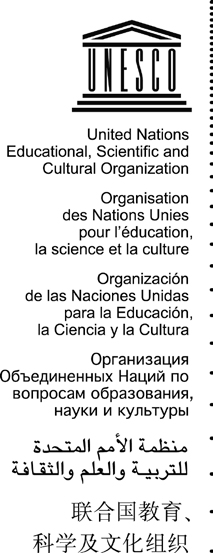 Message from
Message from
Ms Irina Bokova,
Director-General of UNESCO,
on the occasion of the conference organized by
Aid to the Church in Need
Malta, 11-13 May 2014
On 10 December, 1948, the United Nations General Assembly adopted the Universal Declaration of Human Rights, enshrining the fundamental freedoms that are essential for the equality and dignity of every woman and man.
The Declaration is one of the most inspiring, humanist texts ever written — it is also a call to action for people and Governments to join forces in order to enforce human rights and ensure that they are exercised in full. As stated in the 2001 UNESCO Universal Declaration on Cultural Diversity, “No one may invoke cultural diversity to infringe upon human rights guaranteed by international law, nor to limit their scope.” The protection of all human rights, including respect of religions and beliefs, is essential for human dignity.
UNESCO is acting across the world to promote the rights and freedoms that fall within its fields of competence — notably, the right to education, the right to freedom of opinion and expression, the right to participate in cultural life, and the right to enjoy the benefits of scientific progress and its applications.
With its partners, UNESCO is committed to making the standards and principles of international human rights law understood as widely as possible, including through human rights education. We need stronger joint efforts to disseminate the values of tolerance and dialogue, to increase knowledge of other cultures and to foster respect for the dignity of all irrespective of religion, culture or occupation, age, sex, and origin. These are foundations for building the defences of peace in the minds of men and women, which is UNESCO’s core mission.
The basic right to express oneself through language, culture and creed is inscribed in the core freedoms of every woman and man. Differences must never be a reason for division. Each of us has a responsibility to prevent and fight against discrimination, and this includes making the most of all existing normative instruments.
Intercultural and interreligious dialogue is essential at this time of deep change, when all societies are transforming quickly. In this context, I believe it is more important than ever to recognize that people increasingly perceive themselves as having multiple identities and affiliations. This is the result of social transformation, the rise of new technologies and flows of migration. This calls on us to build new bridges of dialogue and to fight against all forms of discrimination. These goals guide all UNESCO’s work to promote tolerance, respect and mutual understanding between cultures and peoples, including those of different faiths.
UNESCO takes this agenda forward at many levels — through education for human rights, through the safeguarding of cultural heritage and through the promotion of cultural diversity as a source of strength for all societies to share. I am convinced that all of this holds the key to more inclusive, more peaceful and stable, more tolerant and stronger societies, to which we all aspire.

Irina Bokova
